The average running time for a feature film is somewhere between 1.5 and 3 hours, with the higher end of that range becoming all too common. Especially in summer popcorn fare, movies that pull the average up do so by having so much to do, and often very little to say (here's looking at you, Star Trek: Into Darkness). But when I look at many of what I consider great films, complexity is certainly not a requirement. Indeed, with only two hours or so in which to tell a story, a single strong theme can reach the greatest heights of cinema.
I aim to establish this with a new series of posts, beginning here. I will discuss films that center around one of each of the so-called seven deadly sins - greed, lust, wrath, envy, gluttony, pride, and sloth. Most importantly, these films show just why, even in practical terms if not religious, these sins can indeed destroy.
Pride in The Long Good Friday (1980)
American viewers (well, over the age of 25) likely recognize Bob Hoskins immediately from Who Framed Roger Rabbit?, though he's certainly had a distinguished career otherwise. For me, The Long Good Friday is the jewel in the crown. To get going with, among other things, the theme, enjoy this entrance:
Hoskins plays Harold Shand, a gangster who runs nearly the entire London underworld in a criminal organization referred to as "the Corporation." Returning from a trip to America (depicted in the scene above), Shand intends to woo the American mafia into investing in the redevelopment of the London waterfront in preparation for the Olympics. The move stands to make billions, and make the Corporation legitimate. Unlike the conflicted, somewhat reluctant Michael Corleone in The Godfather series, the legitimacy is of far less import to Shand than the money and power that come with it.
Shand has plenty invested in the appearance of legitimacy, though, or at least a certain luxurious flare. His wife Victoria (Helen Mirren) is well bred, and practically his consigliore. His henchmen all dress impeccably, and drive him around in various luxury automobiles. He has a yacht and a penthouse apartment. The yacht is where Harold begins his return, showing not just his new American friends the prospective property but high-ranking police officers and other members of London's elite.
And then everything goes wrong.
While waiting for Harold's mother to finish Good Friday services at church, one of Harold's men is blown up in his Rolls Royce. At about the same time, Harold's man (and close friend) Colin is stabbed to death. Infuriated, but also bewildered at who would be so brazen as to attack him, Harold sets his men to find the culprits, expecting it to end very quickly. With the police in his pocket, he also enlists their help. But it soon becomes apparent that the killers aren't afraid and won't quit until Harold is dead.
I'm certainly not immune to clichés here at Cinematic Leisure, but this is one of the few films I can shamelessly describe as "dripping with atmosphere." The production was certainly not high-budget, but it combines music and mis en scene around its players (an outstanding supporting cast that includes Pierce Brosnan in his first cinematic role) that makes the entire film feel authentic. The violence is not too frequent (certainly not by today's standards), but remains visceral even to modern viewers. We know from the outset that these are bad people we're watching, yet when we see the acts they're capable of we're still shocked. The film does not miss a single beat, and is one of the heights of the gangster genre.
Though the plot is complex, and deliberately bewildering at the beginning of the film, thematically The Long Good Friday is quite simple. Harold's crowning characteristic is pride, and it's his undoing. From the moment he's threatened, he exudes confidence in his eventual victory. As it becomes apparent that he's up against the most powerful enemy he's ever crossed, he never waivers. To him, his only weakness is not knowing who his enemy is. When he finally learns this and is told honestly that he cannot win, Harold responds with rage and violence that we'd only attribute to barbarians.
Pride not only undoes Harold in his last days, but led to the situation in the first place. He's long been lord of the London underworld, and does not even know the workings of many corners of his empire. As he works to solve the "little" problem, he believes he can keep the Americans on the hook, even after they nearly fall victim to one of the attacks.
Of course, my arguments cannot be completed without spoilers, and this is a must-see film whether one is interested in the gangster genre or not. Though extremely portrayed, we recognize Harold's hubris in people we know and work with. It's better flipside, confidence, can indeed take us far, but certainly too far.
The Long Good Friday is currently streaming on Netflix. If you subscribe, it should be at the top of your queue.
Shand has plenty invested in the appearance of legitimacy, though, or at least a certain luxurious flare. His wife Victoria (Helen Mirren) is well bred, and practically his consigliore. His henchmen all dress impeccably, and drive him around in various luxury automobiles. He has a yacht and a penthouse apartment. The yacht is where Harold begins his return, showing not just his new American friends the prospective property but high-ranking police officers and other members of London's elite.
And then everything goes wrong.
While waiting for Harold's mother to finish Good Friday services at church, one of Harold's men is blown up in his Rolls Royce. At about the same time, Harold's man (and close friend) Colin is stabbed to death. Infuriated, but also bewildered at who would be so brazen as to attack him, Harold sets his men to find the culprits, expecting it to end very quickly. With the police in his pocket, he also enlists their help. But it soon becomes apparent that the killers aren't afraid and won't quit until Harold is dead.
I'm certainly not immune to clichés here at Cinematic Leisure, but this is one of the few films I can shamelessly describe as "dripping with atmosphere." The production was certainly not high-budget, but it combines music and mis en scene around its players (an outstanding supporting cast that includes Pierce Brosnan in his first cinematic role) that makes the entire film feel authentic. The violence is not too frequent (certainly not by today's standards), but remains visceral even to modern viewers. We know from the outset that these are bad people we're watching, yet when we see the acts they're capable of we're still shocked. The film does not miss a single beat, and is one of the heights of the gangster genre.
Though the plot is complex, and deliberately bewildering at the beginning of the film, thematically The Long Good Friday is quite simple. Harold's crowning characteristic is pride, and it's his undoing. From the moment he's threatened, he exudes confidence in his eventual victory. As it becomes apparent that he's up against the most powerful enemy he's ever crossed, he never waivers. To him, his only weakness is not knowing who his enemy is. When he finally learns this and is told honestly that he cannot win, Harold responds with rage and violence that we'd only attribute to barbarians.
Pride not only undoes Harold in his last days, but led to the situation in the first place. He's long been lord of the London underworld, and does not even know the workings of many corners of his empire. As he works to solve the "little" problem, he believes he can keep the Americans on the hook, even after they nearly fall victim to one of the attacks.
Of course, my arguments cannot be completed without spoilers, and this is a must-see film whether one is interested in the gangster genre or not. Though extremely portrayed, we recognize Harold's hubris in people we know and work with. It's better flipside, confidence, can indeed take us far, but certainly too far.
The Long Good Friday is currently streaming on Netflix. If you subscribe, it should be at the top of your queue.



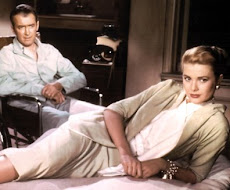_01.jpg)



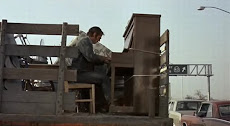

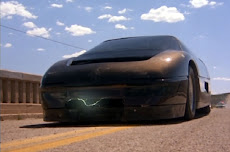
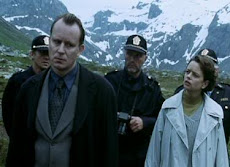







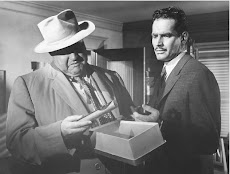
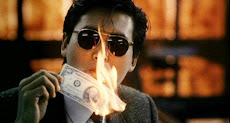

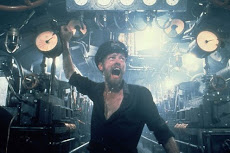
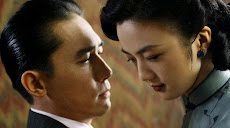

No comments:
Post a Comment